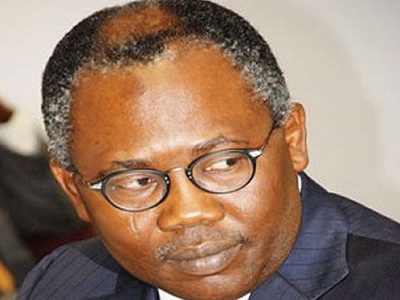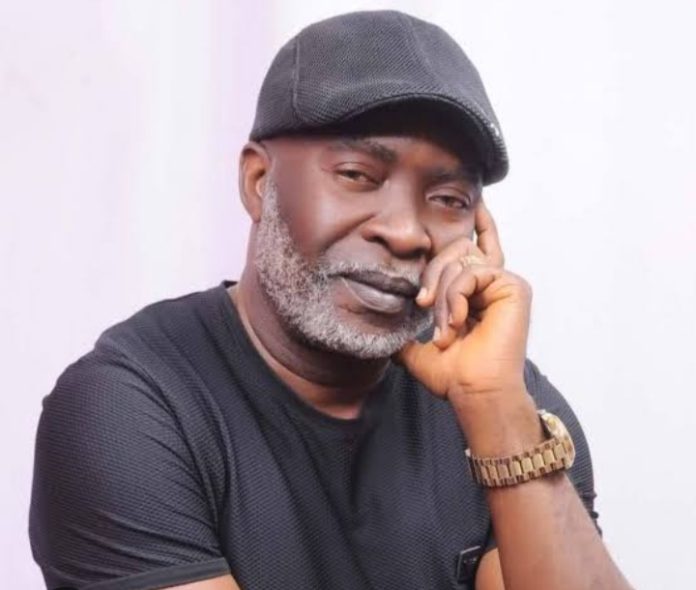News
New Generation Consortium Needs $4.5Bn to Rejig Nitel

New Generation Telecommunications Consortium, the preferred bidder for the purchase of a controlling stake in Nitel/Mtel may have won the first phase of the battle for what is left of the beleaguered national carrier, but the enormous financial weight needed to rejig the carrier may prove fiercer, Nigeria CommunicationsWeek can now reveal.
In the short to medium terms, New Generations Telecom requires at least $4.5 billion to bring the first national operator to the level of competitions in the market and in the present very tough global financial market, the amount is staggering.
Apart from the $2.5 billion bid price for Nitel, the investors must source at least additional $2 billion to fast track the market re-entry of the national carrier and bring the carrier to the level of competitions like MTN, Glo, and Zain.
Nigeria CommunicationsWeek gathered that the fear is that after spending about $4.5 billion, the investors may not expect any return on investment at least in the next 10 years because the market is nearing saturation.
An official of the consortium who spoke on the condition of anonymity asked “don’t you think we have studied the market and worked out the business module that suits the national carrier before we put our best foot forward?”
The official said the consortium is bent on breaking the jinx and myth that surround successive failed attempts to sell government stake in the now comatose Nitel.
According to him, most of the funds will be sourced offshore. “We are not looking for local financing, Minerva Group; you will recall is our main financial backer. Money is not more important as financial and technical know-how,” the official added.
Expressing readiness of the group to pay, the official, said “if the National Council on Privatization (NCP) approves, today, we will hand BPE our draft in tomorrow.”
Chigbo Anichebe, spokesman for the Bureau of Public Enterprises (BPE) confirmed that NCP, the final okaying authority is yet to sit to approve the transaction.
He told Nigeria CommunicationsWeek that when the NCP approves the sale, the preferred bidder will be given 10 days to pay 30 per cent of the $2.5 billion (amounting to some $750 million) while the remaining 70 per cent must be paid within 60 days.
Meanwhile, the preferred bidder is rumoured to have string of suitors with deep wallets as well as technical and managerial expertise eager to turn around the fortunes of the national carrier.
They are eyeing Nitel’s tremendous goodwill, frequency, Sat-3 and landed properties.
An inside source said “that way, we hope to use the avalanche of cash that will available to restart the network. The truth is that the $2.5 billion by New Generation Consortium is unnerving.”
According to the BPE, New Generation Consortium’s $2.5 billion was followed by Omen International’s $956 million. Others are Brymedia Consortium $551 million and AFZ/Spectrum consortium $375.5 million and MTN which bidded for only SAT-3 and offered $25 million.
According to the source, negotiations among the parties have been characterized by hard bargaining and shrewd exchanges.
It would be recalled that New Generation Consortium etched its name in the record books after it emerged the preferred bidder for Nitel. It was a landmark privatization deal in any developing country outside the oil and gas sector.
Nigeria CommunicationsWeek gathered that the New Generation Telecom Consortium involved is made up of GiCell, local telco, China Unicom (Europe) and Minerva. Others are Sumatra Star GT Limited, Unified Access Licencee, and BGL Private Equity Limited, a subsidiary of BGL Plc.
GiCell Wireless on the other hand is jointly owned by GIC Nigeria Limited and Usman Ahmed Gumi, proprietor of G-Cell Nigeria Limited which is a rural telephony operator.
While GIC Nigeria Limited owned two-thirds equity, Gumi owned the balance one third of GiCell.
GIC Nigeria Limited with share capitalization of N500, 000 and located on Cemetery Road, Onitsha, Anambra State is owned by Ifeanyi Chima (N400, 000 shares) and Ikeme Chima (N25, 000). They are both directors of the company with Corporate Affairs Commission (CAC) Company Registration number RC 207962.
News
Okonjo-Iweala Urges Nigeria to Shift from Importing Tech to Local Manufacturing

Dr. Ngozi Okonjo-Iweala, Director-General of the World Trade Organisation, WTO, has urged Nigeria to move decisively beyond importing technology to manufacturing it locally, warning that sustained dependence on foreign technology weakens the country’s industrial base and constrains job creation in the digital economy.

Speaking at Ahmadu Bello University, ABU, Zaria, Okonjo-Iweala said the current disruption of the global order, driven by technology, geopolitics and climate pressures, presents both serious risks and unprecedented opportunities for Nigeria and Africa, if they are prepared to act strategically.
“It is always a pleasure to come home to Nigeria, but it is particularly special to be here at one of the country’s most important seats of learning,” she said, stressing that universities such as ABU must remain central to Africa’s technological, industrial and economic transformation.
Tracing Nigeria’s post-independence journey, Okonjo-Iweala recalled that at independence in 1960, the country had only one degree-awarding institution, making the rapid expansion of universities a critical pillar of nation-building.
She noted that institutions such as ABU laid the foundation for Nigeria’s scientific, technological and entrepreneurial capacity.
Founded in 1962 as the University of Northern Nigeria, ABU has evolved into a multidisciplinary institution producing graduates across engineering, medicine, sciences, ICT, public administration and the humanities.
“Research conducted here has advanced the frontier of knowledge and offered practical solutions to real-world problems, from animal feed innovations during dry seasons to wind power generation in rural areas,” she said.
Turning to global trends, the WTO chief identified technology, particularly the internet and artificial intelligence, AI, as one of the most disruptive forces reshaping trade, production and employment worldwide.
“The technological shift we are experiencing has made it easier to communicate, produce and trade, but not everyone has shared equally in the gains,” she said, warning that automation and AI could deepen inequality if not properly managed.
She stressed that multilateral institutions and global trade rules must evolve to respond to emerging technologies such as AI and quantum computing.
“We need a new kind of multilateralism, one that is nimble, responsive and capable of addressing new global opportunities,” she said.
Okonjo-Iweala said Africa stands to benefit from what the WTO now describes as “re-globalisation”, the diversification of global supply chains away from over-dependence on a few countries.
She identified opportunities in labour-intensive manufacturing, critical minerals processing, renewable energy technology, pharmaceuticals, agro-processing and electric vehicle, EV, supply chains.
“Africa has the capacity to process its critical minerals all the way to EV battery manufacturing,” she said, pointing to Nigeria’s emerging lithium processing investments and vast renewable energy potential.
Reinforcing her call for local technology production, she said Nigeria must stop importing technologies it can manufacture domestically.
“Instead of importing solar panels, we should be manufacturing them here. That is how we create jobs, build resilience and grow our economy,” she said.
Okonjo-Iweala warned that Nigeria’s projected economic growth of 4.4 percent remains insufficient once population growth is factored in, calling for sustained growth of 6 to 7 per cent driven by productivity, technology and value addition.
She said achieving this would require strong digital infrastructure, skills development and innovation-friendly policies, alongside full implementation of the African Continental Free Trade Agreement, AfCFTA.
“Technology-enabled trade and deeper regional integration could increase intra-African trade by up to 45 per cent and lift millions of people out of poverty,” she said.
With Africa projected to account for about 25 per cent of the global working-age population by 2050, Okonjo-Iweala described Nigeria’s young population as one of its greatest technology assets.
“On an ageing planet, Africa’s youth represent the world’s future talent pool,” she said, urging universities, policymakers and the private sector to better align education, innovation and industrial strategy.
She, therefore, called for stronger collaboration between academia, industry and government to ensure Nigeria does not miss the opportunities created by global technological disruption.
“This country has what it takes. What we need is urgency, coordination and the courage to invest in our people and our ideas,” Okonjo-Iweala said.
News
Stanley Amandi, Nollywood Actor Arrested over Alleged Coup Plot against Tinubu

Stanley Amandi, veteran Nollywood actor and filmmaker, has been arrested by the Nigerian military over his alleged role in a foiled coup plot to overthrow President Bola Tinubu’s government, according to an exclusive report by Premium Times.

Stanley Amandi, Nollywood Actor
The filmmaker, also a former chairman of the Actors Guild of Nigeria (AGN) Enugu State chapter, was reportedly detained in September 2025 alongside several military officers accused of planning a violent overthrow, including potential assassinations of top officials, according to the newspaper’s sources.
Reports indicated that the coup plotters planned to wholesale assassination of top government officials including President Tinubu, Vice President Kashim Shettima, Senate President Godswill Akpabio, and Speaker of the House of Representatives Tajudeen Abbas, among others.
On Monday, the Defence Headquarters confirmed the plan to illegally oust the Tinubu administration, saying the indicted officers will be arraigned before military judicial panels.
In its statement, the Defence Headquarters said the investigation has been completed and forwarded to “appropriate superior authority in line with extant regulations.”
According to the military, the investigation was “comprehensive” and conducted in line with established procedures, examining “all circumstances surrounding the conduct of the affected personnel.”
The military disclosed that the findings identified “a number of the officers with allegations of plotting to overthrow the government,” describing such conduct as “inconsistent with the ethics, values and professional standards required of members of the Armed Forces of Nigeria.”
Mr Amandi has featured in many Nollywood movies and is known for his work as an actor, production manager and director.
His notable works include “The Album,” where he served as director; “Tiger King,” where he also served as director and produced in 2008; “Cornerstone,” produced in 2019; and “Once Upon a Dream,” in which he appeared as an actor in 2024.
Mr Amandi’s last Instagram post was on 19 September 2025, shortly before his arrest.
News
Firms Commit to Boost African Robotics Market

AfricAI and Micropolis Robotics have signed a multi-year exclusive distribution and deployment agreement, which marks one of the continent’s most significant robotics market entries.

Micropolis AI Robotics is a United Arab Emirates-based robotics manufacturer operating in autonomous systems, while AfricAI is a company building practical, revenue-driven artificial intelligence (AI) systems for African businesses, governments, and global partners operating in emerging markets.
According to the agreement, Micropolis Robotics named AfricAI as its exclusive continental partner, prohibiting direct sales, alternative distributors, and third-party agents from operating in the territory.
The partnership establishes AfricAI as the primary execution, localisation, and go-to-market platform for intelligent robotics in Africa’s industrial, security, logistics, and infrastructure sectors.
AfricAI said this exclusive mandate positions the company as the gateway for advanced autonomous systems entering African markets, ensuring regulatory compliance, local capacity building, and sovereign control over deployment frameworks.
The partnership, according to the two parties, moves beyond software- based AI into the realm of physical AI — intelligent machines capable of operating in complex, real-world African environments.
“This is not a collaboration, it is a market-shaping mandate,” said Fareed Aljawhari, CEO of Micropolis Robotics. “AfricAI now represents the exclusive gateway through which Micropolis technologies enter Africa. Their sovereign AI vision, operational reach, and regulatory fluency make them the only partner capable of executing at a continental scale.
Furthermore, the agreement enables AfricAI to integrate Micropolis’ autonomous robotics systems with AfricAI’s sovereign AI stack, resulting in AI-powered security and surveillance platforms, robotics-enabled logistics and port operations, industrial automation, smart infrastructure, and municipal robotics tailored to African operating conditions.
Initial deployments will commence in security, smart infrastructure, and logistics, with phased expansion across multiple African states as part of AfricAI’s broader continental AI, data, and intelligent infrastructure strategy.
The agreement also includes long-term performance-linked expansion rights, automatic renewals, and a defined localisation framework to support robotics deployment, workforce training, and skills transfer across Africa.
Prince Malik Ado-Ibrahim, executive chairman of AfricAI, said: “Africa does not need imported automation — it needs sovereign, context-aware intelligent systems. This exclusive mandate allows AfricAI to industrialise robotics deployment at scale while retaining control, compliance, and value creation on the continent.”

 Telecom3 days ago
Telecom3 days agoPolice Bust ₦7.7bn Telecom Hack Gang, Seize 400 Laptops in Massive Fraud Swoop

 General News3 days ago
General News3 days agoNCC Slaps ₦250,000 Fee on Trial Licences to Spur Telecom Innovation

 General News3 days ago
General News3 days agoNaira Smashes Through ₦1,400 Barrier in Official FX Rally

 News3 days ago
News3 days agoFirms Commit to Boost African Robotics Market

 E-Financial3 days ago
E-Financial3 days agoUBA launches instant digital platform for seamless account opening across Africa, diaspora

 E-Financial3 days ago
E-Financial3 days agoKuda MFB Secures National Microfinance Banking Licence, Sets Stage for Nationwide Growth

 Telecom3 days ago
Telecom3 days agoAmazon Axes 16,000 Jobs Worldwide in Major Restructuring Push

 General News3 days ago
General News3 days agoKaspersky Reveals How Digitalisation is Influencing Family Life















